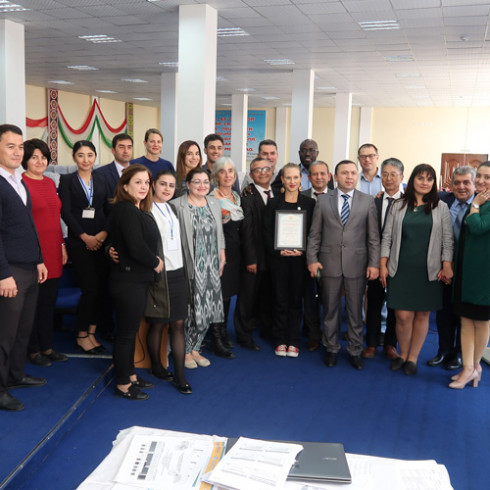Some work had already been carried out by the World Health Organization to help reorganise rehabilitation in the post-Soviet era. But the first task for Sidy Dieye, head of programmes and development, and his team was to get buy-in from the local health professionals and change their understanding of contemporary physiotherapy.
The three project mentors are Ann Nicholson, member of American Physical Therapy Association, Nihad Almasri, member of Jordanian Physiotherapy Society, and Heather Dawson, member of Australian Physiotherapy Association.
There was already a curriculum in place, and about a third of its content was mandatory, but the team worked to develop the remaining curriculum. With the support of the limited team on the ground – the entire physiotherapy workforce consists of one physiotherapist and four rehabilitation assistants who had trained in India – the World Physiotherapy team has been supporting them in bringing the course up to date. It has also advised on the current understanding of what physiotherapy is and can do.
This in-country team is supporting those currently going through training and is starting to introduce more forward-thinking approaches.
“This helps others appreciate what needs to be done,” says Sidy. “At an educational level, people are starting to understand that. And the faculties at the training institute, all of the medical doctors understand now that they need to change.”
Heather is positive about progress. “The teachers at the Republican Medical College and the service providers now understand what physiotherapy is in the World Physiotherapy sense – and that it is a separate profession. A physiotherapist is not a specialised nurse or a specialised doctor.
“There is a commitment on the part of the teachers to change, to introduce an entry-level curriculum and to overcome the myriad of challenges. This determination is underpinned by the commitment from the government of Tajikistan to improve the health of their people as part of their commitment to WHO’s Rehabilitation 2030 agenda.”
Funded by the USAID Strengthening Rehabilitation Services in Health Systems, the project is a collaboration between UCP Wheels for Humanity and is supported by the Ukrainian Association of Physical Therapy, the Ukrainian National Assembly of People with Disabilities, World Physiotherapy, and the Republican Medical College of Tajikistan. The project will run until mid-2022.



